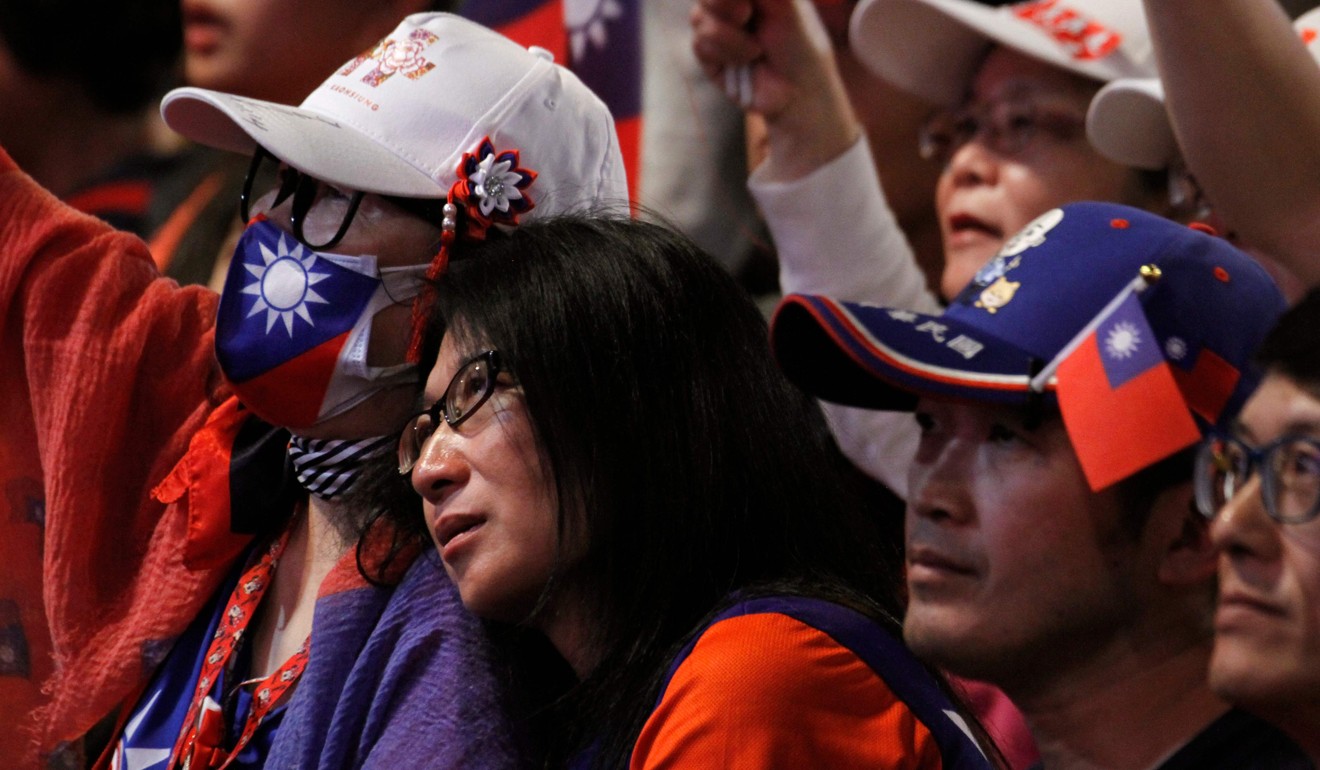
Taiwan’s young voters have spoken – the KMT must update its vision of relations with China
- The tired approach of the ‘1992 consensus’ no longer resonates with voters. The young Taiwanese who gave Tsai Ing-wen a resounding electoral victory have grown wary of communist China. Can the KMT answer their needs?
She should also thank young Taiwanese voters, who have developed a knee-jerk aversion to communist China and are anxious to be heard.
But Han’s popularity rating took a beating as Hong Kong’s anti-extradition-law protests raged on in the summer. As one media commentator observed, his approval rating among the younger generations was especially low.

The 1992 consensus provides that both sides of the Taiwan Strait agree there is only one China – but which China? The KMT’s formula has been “one country, two interpretations” – with “one country” referring to the Republic of China that was established in 1911 in the KMT’s interpretation, and to the People’s Republic of China in Beijing’s interpretation.
But the KMT can no longer rely on such strategic ambiguity, as young voters simply do not buy it. Its lack of a clearly articulated position vis-à-vis China will continue to be its Achilles' heel.
As the population of Taiwan’s “first-generation mainlanders” – those who went to Taiwan following the KMT’s retreat during the civil war – shrinks, it is not surprising that the younger generations are at the forefront of an erosion of Chinese identity among Taiwanese.
A 2018 survey conducted by the Taiwan Foundation for Democracy found that among the group aged 20-24, the percentage of Taiwanese supporting authoritarianism was lower than that in Europe and the United States. Although the percentage of the group aged 25-34 accepting authoritarianism was higher than in Europe, it was still lower than in the US.
In both Europe and the US, young people support the authoritarian system more than the older generations; however, Taiwan is just the opposite: the younger a voter, the more opposed to authoritarianism. The 2020 election result bore out this observation.
According to the Central Election Commission of Taiwan, there were some 1.18 million first-time voters this year. Taiwan has 5 million voters aged between 20 and 35, accounting for one-quarter of the total eligible voters.
In past elections, the voting rates of young people aged 20 to 35 were generally between 50 and 60 per cent, about 20 percentage points lower than the rate for the older groups, according to the Taiwan Youth Association for Democracy. This is because young people tend to work away from home and do not return to their registered addresses to vote.
But this time around, a sense of urgency drove many youngsters to the ballot box. A campaign jointly organised by the Taiwan Youth Association for Democracy, the National Students’ Union of Taiwan, and the student unions of 59 colleges raised funds for the bus fare to go home and raised awareness of the importance of returning to vote.
KMT chairman Wu Den-yih has heeded the calls for him to step down, but it is unclear whether the 100-year old party can reinvent itself. A weakened KMT could spell disaster for Taiwan’s democracy as it would clear the way for the DPP to assume de facto one-party rule for the foreseeable future, benefiting from the strategic rivalry between the US and China.
There are signs that the DPP could be utilising “state apparatus” to quash dissent and free speech. National Taiwan University professor Su Hung-dah, who in 2018 criticised the National Palace Museum’s planned “rebranding” to dilute its Chinese association, said he was recently investigated by the authorities for the comment.
With the DPP in power for the next four years, I expect China to step up its propaganda indoctrination and efforts to isolate Taiwan economically and politically, while simultaneously doling out incentives to lure talent from Taiwan.
But such an approach will inevitably further alienate Taiwan’s young voters, as the KMT’s defeat demonstrates. For the sake of Taiwan’s democracy, the KMT must restructure itself around the needs of the young generation and rethink its narrative about the cross-strait relationship.
Chiu-Ti Jansen, with advanced degrees from Yale and Columbia, is the founder of multimedia platform China Happenings and a former corporate partner of international law firm Sidley Austin

